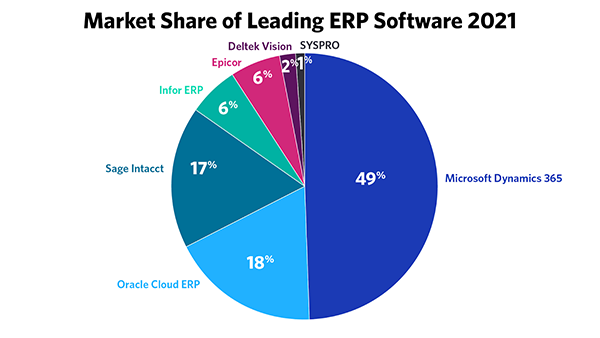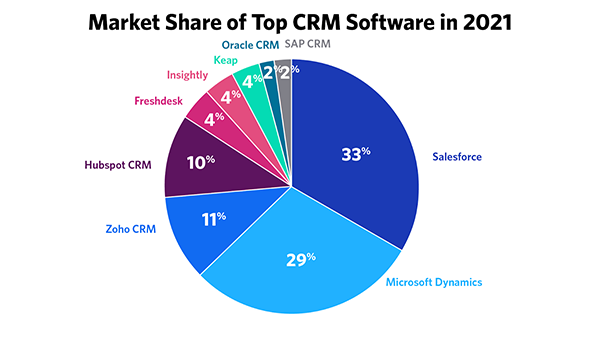Unlocking B2B Synergy: How Integrated CRM and ERP Systems Enhance Business Operations
Customer Relations Management (CRM) and Enterprise Resource Planning (ERP) software are some basic yet modern business software that are heavily used in current times. They both are perfect with their jobs and duties, but there are still some heights that can be achieved if they are well-integrated.
Services like HubSpot to NetSuite integration claim to revolutionize business operations by making them smoother than ever. However, before trusting such claims, it is noteworthy to think about them critically and analyze how they work.
So, this write-up is going to be your guiding light which can take you through the journey. Also, learn about Personalization and Customization in Banking CRM by reading this article.
What are CRM and ERP Solutions?
Before analyzing CRM and ERP solutions, it is necessary to keep an eye on what they actually are. So, let’s first get you introduced to the concept.
Broadly termed, ERP or Enterprise Resource Planning solutions overwatch the finance, accounting, resource, and other management work for the company. A huge chunk of their total responsibilities are associated with the numbers.
Whereas, CRM software means Customer Relation Management software. These software products are completely focused on maintaining fruitful and effective communication with both clients and potential clients.
Now that you know about their fundamentals, let us compare their roles and learn how they can be well-integrated.
What are the Roles of ERP and CRM Software?
CRM and ERP are both perfect in their own world. This section will help you find out the roles and duties of this software:
Roles of ERP Software

- Accounting: Since the principles of ERP are based on numbers, ERP significantly helps the accounting department. It has features like financial analysis, such as account payables, account receivables, cost, budget, etc. ERP shines the brightest.
- Supply Chain Management: Speaking of supply chain operations, ERP keeps a special eye on factors such as demand, supply, manufacturing, logistics, etc. Now, supply chain management is the right platform for businesses.
- Reporting & Manufacturing: ERP is also responsible for maintaining necessary information and reporting it to the respective departments. Also, when it comes to manufacturing, monitoring tasks like production, forecast, raw material supplies, etc. are easier with ERP.
Roles of CRM Software

- Better Customer Engagement: Businesses are effectively able to personalize or shape their communication channels according to their needs. With CRM, enterprises have the opportunity to provide a comprehensive or 360-degree view of customer interactions.
- Sales and Lead Management: Leads can be the list of potential clients that can be turned into your clients. Business owners hire effective team personnel of salesmen or saleswomen to effectively use CRM to generate these leads and sales opportunities.
- Saves Time: With the modern tech revolution, CRM makers have understood that automation is the future. So, developers have updated or integrated modern solutions like automation, artificial intelligence, and numerous other aspects that can help you eliminate repetitive tasks, ultimately, saving a lot of time.
How CRM and ERP Integration can Help?
Integrating CRM and ERP solutions is like the integration powers of two superheroes. With their advanced features and good implementation, there is nothing that can stop enterprises from succeeding.
So, the following are some achievements that can be achieved with their integration:
Reduce Manual Billing
Thanks to the integration of ERP and CRM, all the departments are generally connected with these solutions. This means, all the information is accessible to the departments, and can be used in their operations.
Also, this results in eliminating duplicate data entries from the system. With that, automation and digitization have completely irradiated manual billing.
Quick Customer Operations
Since all the software resources are integrated with all departments, everything is accessible to all. It means the information or data regarding a client is accessible to all concerned departments. With this information, everyone knows the data and history of the client, everything is just a few clicks away.
In other words, ERP contains all the records and shares within the premises, whereas CRM takes the responsibility to ensure a smooth conversation with the client.
lIncreased Sales
As a result of the numerous benefits provided by their integration, increased sales is one of the numerous advantages. How does it work? Since the efforts made are now fewer due to automation, those efforts can be utilized in sales.
Also, opportunities like up-selling and cross-selling deeply benefit the firm to a significant extent. Hence, increased sales are some of the benefits that come along the way.
Final Words
Ultimately, for businesses, cloud-based solutions, CRM, and ERP are some basic infrastructures needed for efficient operations. Apart from seeking numerous benefits individually, businesses can also integrate their functions for better results.
This article covered all the major points that can help portray a clear image of such benefits. If you find this write-up helpful, share it with your team or peers to implement as soon as possible.








